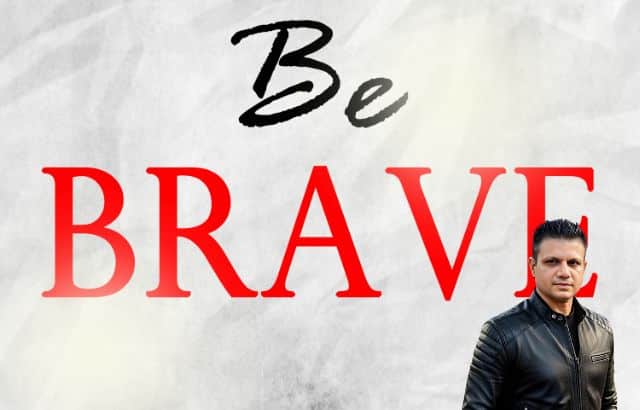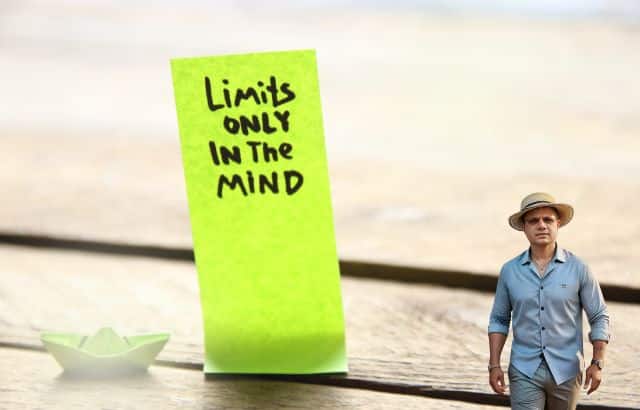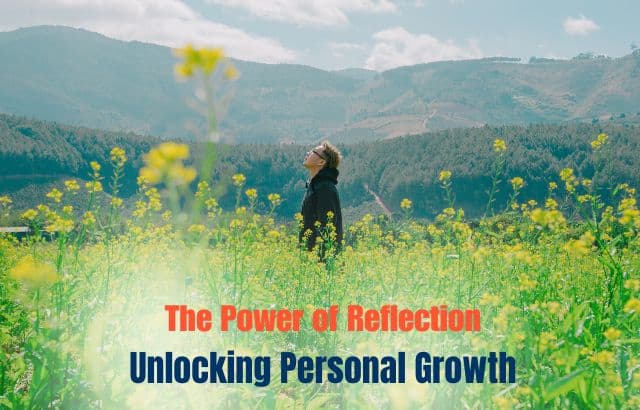The Power of Reflection – Reflection is a powerful tool that can transform our lives in profound ways. By taking the time to analyze our experiences, thoughts, and feelings, we can gain valuable insights that lead to personal growth and development. In this blog, we will explore the significance of reflection, provide examples, and include calculations that illustrate its impact on personal growth. We’ll also address some frequently asked questions to deepen your understanding of this essential practice.
Table of Contents
The Power of Reflection -A gift to mankind
Imagine your life, muted. No birdsong at dawn, no lover’s murmur, no crackling fire’s lullaby. A world draped in silence, its colors dimmed, its stories unheard. Now, open your ears, portals to a kaleidoscope of sound. Feel the gratitude swell, a boundless tide washing over you. Each note, each word, a testament to the miracle of hearing.
The Power of Reflection – What is reflection ?
“Reflection is discovering something… connecting with an emotional feeling and then adding gratitude to it,” says Hirav Shah, India’s Premier Business Enhancement Expert.
The Essence of Deep Gratitude

Reflection goes beyond simply listing things you are grateful for. It’s about truly connecting with the feeling of gratitude. As Shah emphasizes, “If you want to be grateful for something, you have to feel it—feel it in every cell of your body and in every part of your heart.” When you genuinely connect with that emotion, a deep sense of gratitude arises. You don’t need to repeat your gratitude multiple times; just one heartfelt expression is enough to create a lasting impact.
The Importance of Self-Reflection

Self-reflection becomes particularly beneficial when you feel lost or sense that something is missing in your life. At some point in our journey, we all face crossroads where attractive options emerge, or we encounter looming storm clouds no matter which direction we look.
In these moments, the answers may not come immediately. This is precisely when it’s essential to pause, step back, and find a quiet space. Whether it’s taking a short break or escaping to nature, allowing yourself to simply be can lead to profound insights.
The Power of Quiet Reflection

It is often in these quiet, reflective moments that innovative and inventive solutions begin to surface. Hirav Shah suggests one powerful practice: go hiking or immerse yourself in nature. Get as far away from civilization as possible, bring a journal, and start jotting down your thoughts.
This process can be a cathartic experience—freeing your mind from filters and traditional writing conventions. Let your deepest thoughts flow onto the page without restriction.
A Call to Action
Next time you feel off track—whether a little or a lot—try this exercise. Make it more than just a quick 10-minute activity; dive deep into your reflections. Allow yourself the space to explore your feelings and thoughts fully.
Hirav Shah’s Guide -Examples of Reflection in Action

- Journaling
- Example: Sarah, a recent college graduate, starts journaling every evening. She reflects on her day, noting what went well and what didn’t. Over time, she realizes she often avoids networking opportunities due to fear. This awareness encourages her to seek out events, ultimately leading to her first job.
- Performance Reviews
- Example: John, a mid-level manager, participates in quarterly performance reviews. He receives feedback from peers and supervisors, allowing him to reflect on his leadership style. Recognizing areas for improvement, he commits to developing his communication skills, which boosts his team’s productivity.
- Mindfulness Practices
- Example: Emily incorporates mindfulness meditation into her routine. During her sessions, she reflects on her emotional responses to stress. By understanding her triggers, she learns to manage her reactions, leading to improved relationships and lower anxiety levels.
Calculations of Personal Growth

To illustrate the tangible impact of reflection, let’s consider a simple calculation related to goal achievement.
Hirav Shah’s Analysis-Example of Goal Setting and Achievement

Scenario:
- Initial Goal: Read 12 books in a year (1 book per month).
- Reflection Points: Monthly reflections on what was learned.
Calculation:
- Books Read: 12
- Average Learning from Each Book: If Sarah writes a summary of each book, reflecting on key takeaways, she could identify that each book provides at least 3 actionable insights.
- Total Insights Gained = Books Read × Insights per Book
- Total Insights Gained = 12 books × 3 insights/book = 36 insights
- Implementation of Insights: If Sarah decides to implement 50% of these insights into her personal and professional life, that’s 18 actionable changes.
- Personal Growth Metrics: Suppose each implementation leads to a 10% improvement in her work efficiency or personal satisfaction.
- If her initial satisfaction level is 70%, after implementing the insights:
- New Satisfaction Level = Initial Level + (0.10 × 70) = 70 + 7 = 77
This simple calculation shows how reflection can lead to a measurable increase in personal satisfaction and efficiency.
FAQs on The Power of Reflection

1. Why is reflection important for personal growth?
- Reflection allows individuals to learn from their experiences, fostering self-awareness and guiding future decisions.
2. How often should I reflect?
- It varies for each person; however, incorporating reflection weekly or monthly can provide consistent insights without feeling overwhelming.
3. What are effective methods for reflection?
- Common methods include journaling, meditation, self-assessment questionnaires, and discussing experiences with a mentor or coach.
4. Can reflection help with stress management?
- Yes, reflection can help identify stress triggers and coping mechanisms, leading to improved emotional regulation.
5. What if I find it difficult to reflect?
- Start small by setting aside just a few minutes each day or week. Use prompts or questions to guide your reflections, making the process easier and more structured.
Final Thoughts

Practicing gratitude is great, but to make it more wholesome, it has to be connected with a feeling and emotion. It’s like, every cell of your body needs to vibrate with that emotion connected to gratitude.
For eg: If you are grateful for the sense of vision, connect deeply and think about how it would be to not have this “vision”? How would your life change? And then be thankful for those pairs of eyes, most of us take for granted.
“Reflection helps you explore and connect with an emotion, and then add gratitude. Gratitude practice isn’t about going over a list of things we must be grateful for. It’s much deeper than that“-Hirav Shah, The Most Influential Indian Business strategist and Business Transformation Leader Wraps Up Here.












